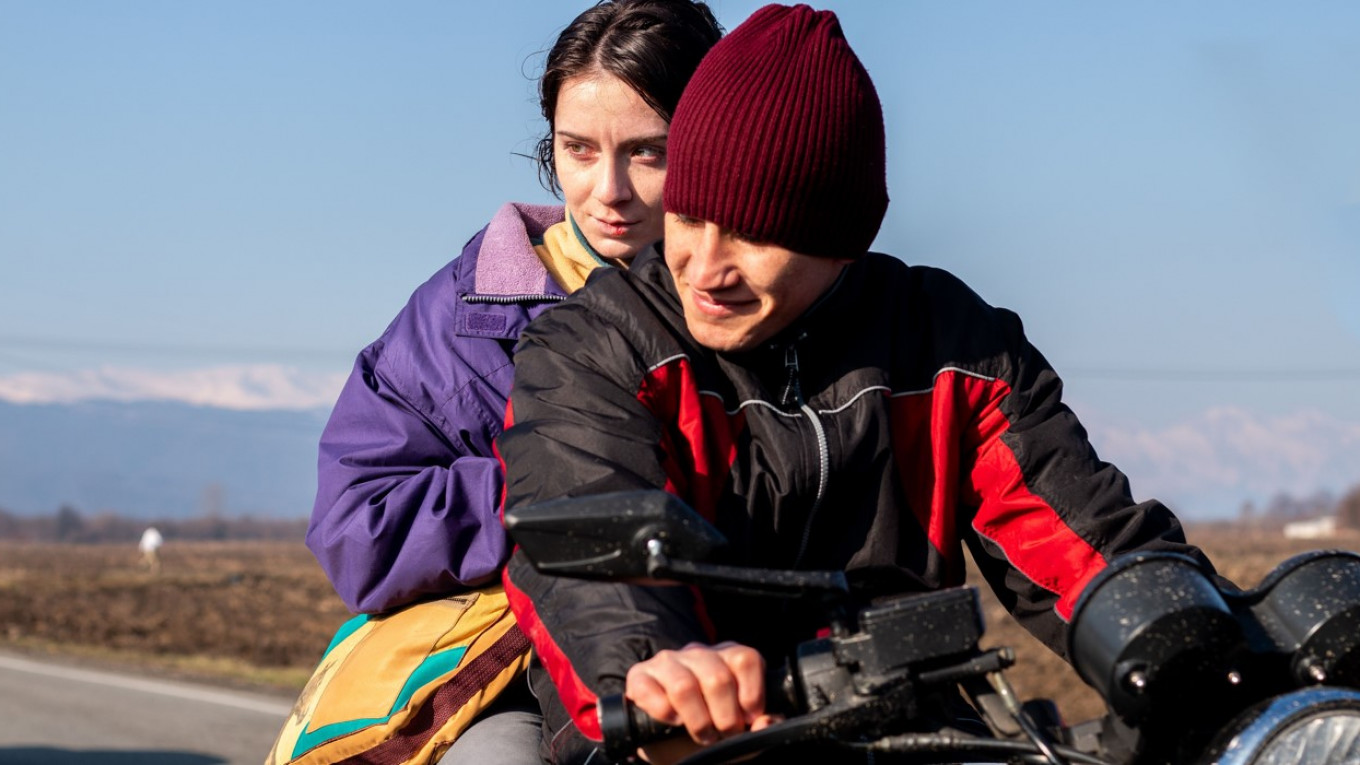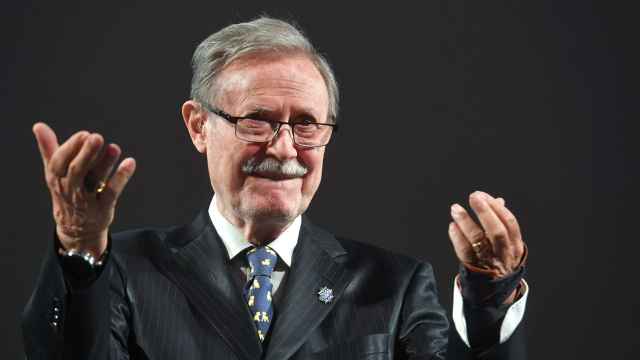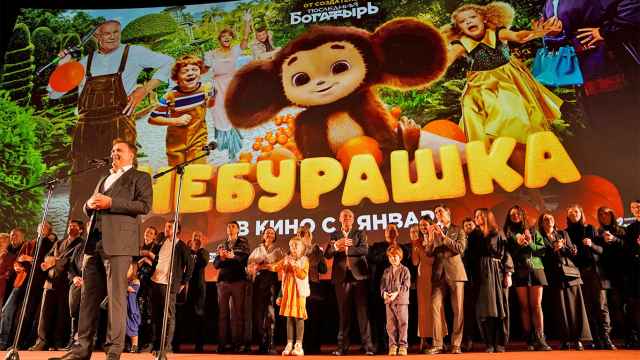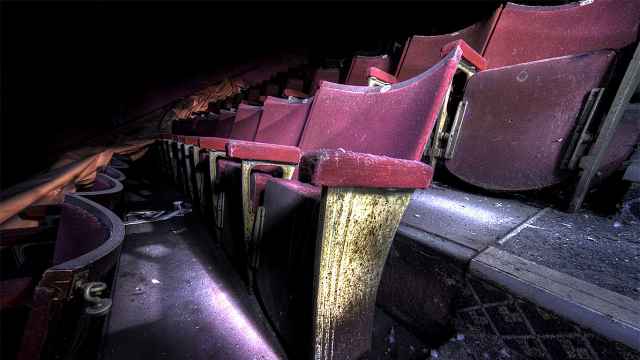This year Russia sent six films to the Cannes Film Festival, four in competitions and two in non-competitive categories. And the filmmakers brought home three awards: the Grand Prix for the film “Hytti Nro. 6” by Juho Kuosmanen co-produced with Russia — shared with the film "Ghahreman" (Hero) by the Iranian filmmaker Asghar Farhadi; the Grand Prix in Un Certain Regard section given to Kira Kovalenko for “Unclenching the Fists”; and the CST Award for Technical Artistry to Vladislav Opelyants for his work on Kirill Serebrennikov’s “Petrov’s Flu.” The cinematographer previously collaborated with Serebrennikov on his films "Summer" and "The Student."
Cannes, the pandemic and Sebrennikov’s flu
In some ways, this year’s festival seemed like it was taking place in a different time period. “La Croisette,” the beach promenade in Cannes, was full of stars from the film festival without protective masks – much like the days before the pandemic.
But the pandemic was present at the festival — in fact, it seemed to be one of the stars of the film “Petrov’s Flu” by Kirill Serebrennikov. Thirty-year-old Petrov works as a mechanic during the day and as a cartoonist at night. It’s the end of the year and Petrov has the flu. He coughs on a bus and he falls into a delirium in a crowd of people in which, reality, visions and fantasies all meld together. His wife, a librarian, is also sick, only her fantasies are about sex and revenge. Petrov infects his son, who is about to attend the school New Year's party, and remembers the party he too went to in the Soviet 1970s. That party has staying in his memory along with a stream of experiences about the past, present, death and life.
The films of the main competition, which are held in the cinema "Lumière," are normally divided into day and night premieres. Evening screenings are believed to be more desirable. The screening of Serebrennikov's film took place during the day, but that didn’t stop the audience from crowding the cinema.
Serebrennikov has not been allowed to leave Russia since 2017 and he could not accompany his film to Cannes. On the red carpet the film was presented by actors who performed the key roles – Yuri Kolokolnikov, Chulpan Khamatova, Ivan Dorn, Yulia Peresild and Yura Borisov, as well as producer Ilya Stewart.
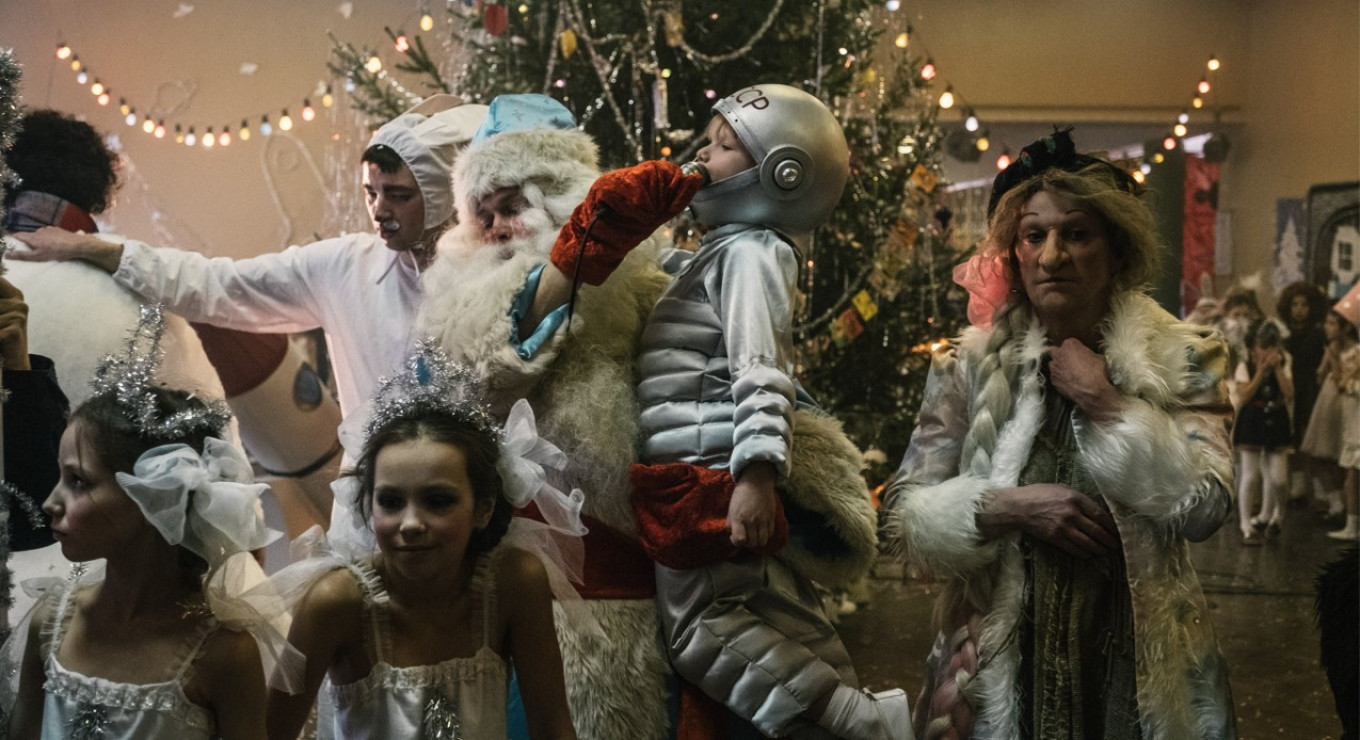
Before the premiere, General Director of Roskino Yevgenia Markova wrote on Instagram: “The only film completely made in Russia in the main competition of the Cannes Film Festival. The show has begun ... Good luck. " In a sense, however, Kirill Serebrennikov still attended his own premiere. Members of the film crew went out to the photographers wearing badges with a portrait of the director. These same accessories were seen on the artistic director of the Cannes film festival Thierry Frémaux and the festival's president Pierre Lescure. The audience greeted the crew with a standing ovation.
“Petrov’s Flu” is Kirill Serebrennikov’s first feature film since his release from house arrest. It plunges the viewer into an atmosphere of oppression, both physical and spiritual. Although it was filmed before the coronavirus appeared, it catches the mood of a country in the middle of a pandemic and a nation caught up in a collective ordeal. He explained his intentions to the international press on Zoom: "The film may look metaphorical, but it has nothing to do with the pandemic. The plot is based on the novel of Alexei Salnikov called 'The Petrovs In and Around the Flu.' Russian literature is known for being prophetic, often associated with the concepts of fate, absurdity and surrealism. Russians feel comfortable with this, and so the period of absurdity and madness which came to Russia with the pandemic was quite familiar to us."
The film is almost two and a half hours long. When the hallucinations of the protagonists became extremely chaotic, some of the audience began to leave. But most of the viewers stayed until the end. Opinions among international journalists were divided. For Tod MacCarthy (Deadline) the film felt "like suffering a physical assault in a dark alley, or having a load of garbage jammed down your throat and piled on top of you until you just can't take it anymore." But Paolo Meregetti (Corriere della Sera) saw in the film "the charm of the Russian soul, with its melancholy and passion, it's dreams and willingness to compromise."
Opelyants was given the award by the Higher Technical Commission of the festival “for his artistry in making us feel the characters’ fevered state.”
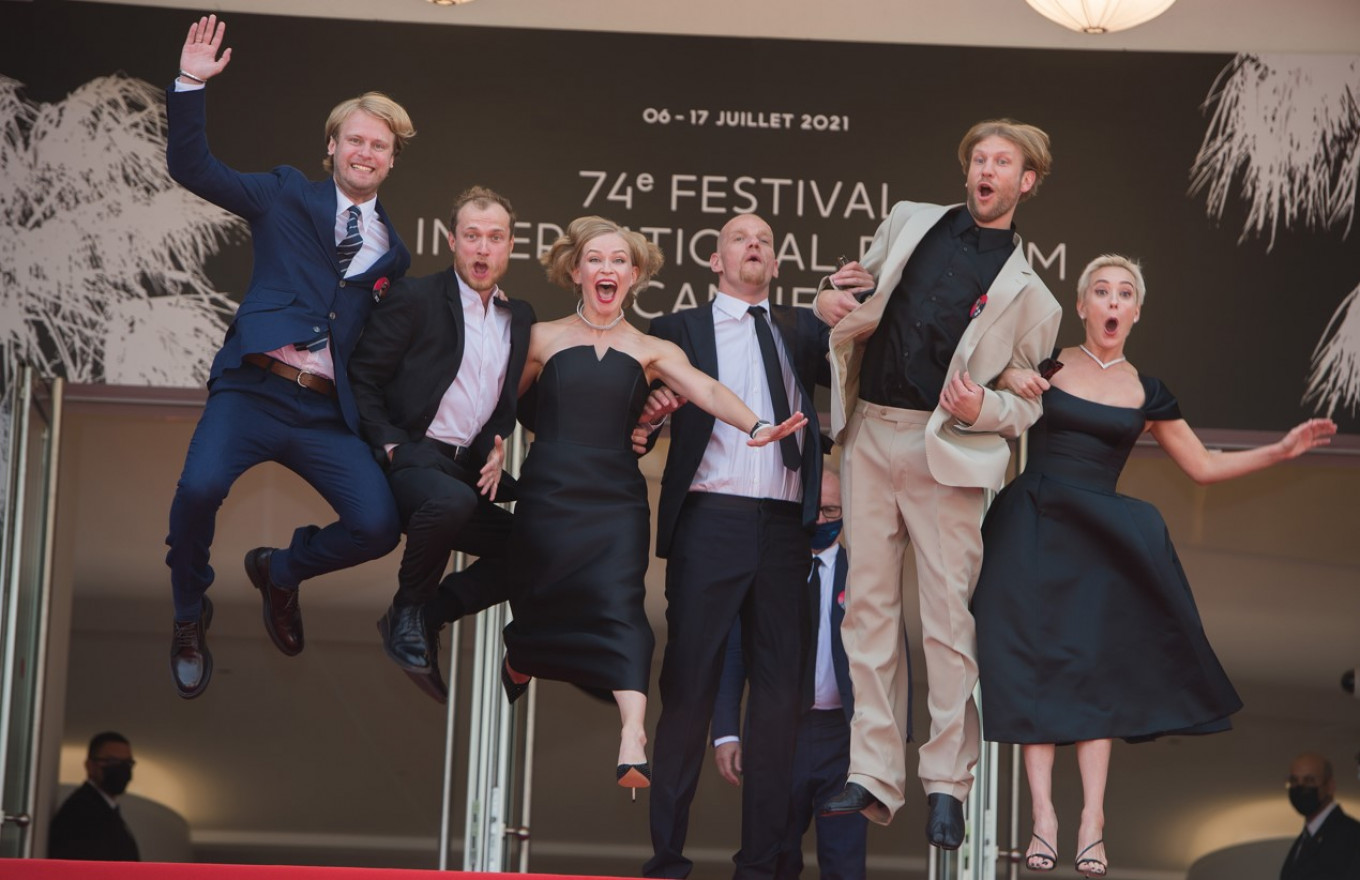
On a train, darkly
The winner of the Grand Prix “Hytti Nro 6” (Compartment No. 6), directed by Juho Kuosmanen, is based somewhat loosely on a novel of the same name by Rosa Liksom. A sensitive road-movie about a journey of two restless souls across Russia. One is a Finnish lesbian student (Seidi Haarla) from the archaeological faculty of the Moscow State University, heading to Murmansk to look at the drawings of primitive people preserved there. The other is a provincial and always drunk construction worker (Yury Borisov, who also acted in "Petrov's Flu"). The two protagonists meet in the train compartment. At first, they are not happy to see each other. But as they travel through the snowy desert, an invisible spiritual connection arises between them. To make this film, Kuosmanen went to another country, dove into an unfamiliar atmosphere and made a film in an unknown language. The Grand Prix in Cannes is well deserved by him.
Kuosmanen wasn’t a newcomer at the Cannes film festival. The audience might remember his "The Happiest Day in the Life of Ollie Mäki," which won an award in Un Certain Regard in 2016. To a Western viewer, not accustomed to lyrical digressions, this film may at first feel a bit abstract, but Russian audiences will recognize the characters as well as the circumstances in which they find themselves.
South to Moscow and the Caucasus
Kira Kovalenko's film "Unclenching The Fists," winner in the Un Certain Regard category, is concerned with people’s lives in the North Caucasus, in particular one young woman who seems to be under "house arrest" but is trying to strike a balance between her own life and the stifling affections of her father and brother. "It's a small intimate story,” Kovalenko said, “with a woman as the heroine. The main character could have been a man. The first version of my script was about three brothers. In films, I do not ask social or political questions. I am always interested in a person and his relationship with others."
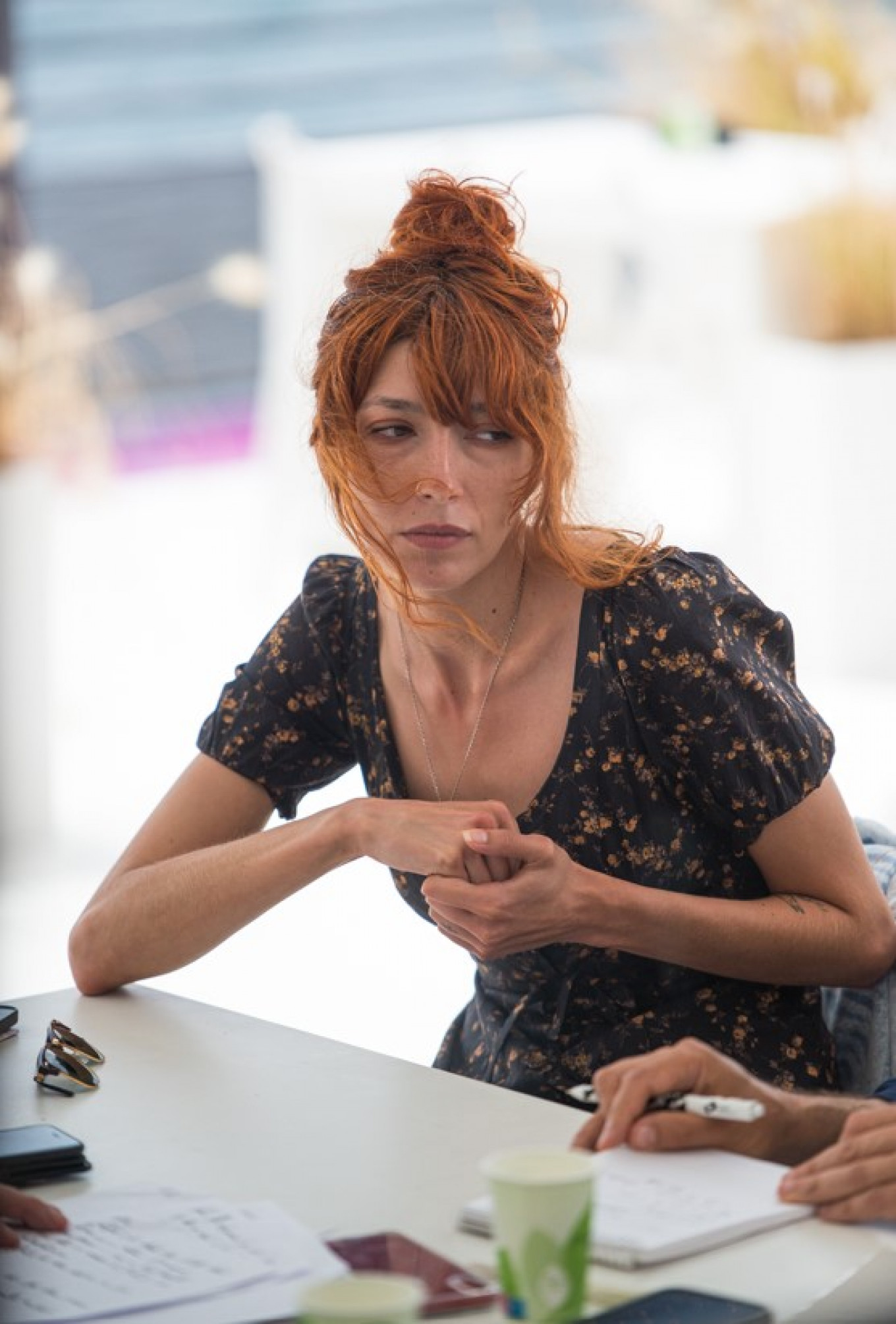
Kovalenko’s award was the first Grand Prix taken back to Russia since 2008 in this category.
The Russian pavilion at the Village International in Cannes turned out to be a very popular place. Far from the pandemic, meetings with filmmakers, public presentations, and cocktails were regularly held. The guests were served traditional blinis and sweets. Many international journalists were surprised to discover a new generation of Russian filmmakers and producers who were open to joint projects.
One of the main events of the Russian pavilion was the presentation of a new export initiative called Russian Content Worldwide (RCW), which seeks to develop international cooperation, encourage interest in the Russian content market as well as offer filming locations. The fact that such initiatives are successful was shown by the recent award ceremony, where the joint project "Hytti Nro 6” received the award.
A Message from The Moscow Times:
Dear readers,
We are facing unprecedented challenges. Russia's Prosecutor General's Office has designated The Moscow Times as an "undesirable" organization, criminalizing our work and putting our staff at risk of prosecution. This follows our earlier unjust labeling as a "foreign agent."
These actions are direct attempts to silence independent journalism in Russia. The authorities claim our work "discredits the decisions of the Russian leadership." We see things differently: we strive to provide accurate, unbiased reporting on Russia.
We, the journalists of The Moscow Times, refuse to be silenced. But to continue our work, we need your help.
Your support, no matter how small, makes a world of difference. If you can, please support us monthly starting from just $2. It's quick to set up, and every contribution makes a significant impact.
By supporting The Moscow Times, you're defending open, independent journalism in the face of repression. Thank you for standing with us.
Remind me later.



